Impulse Group NYC, in collaboration with LaQuann Dawson, presents a book to celebrate and archive the spectrum of intricate experiences as a queer community in New York City, challenging the community to exude authenticity through owning one’s truths, unique qualities and identities. ‘Our Light Through Darkness’ personifies these truths as being a form of resistance through even the darkest hour. This is a visual manifesto for queer liberation, acceptance, and infinite visibility.
LaQuann Dawson is a filmmaker, creative director and photographer out of Elyria, Ohio now living in Brooklyn, New York. A self-identified archivist, LaQuann seeks to leave behind further proof that Black and queer people have always been beautiful. For him, this book is “a love letter to queer people in an effort to say: you did that, I love you, keep going.”
Our Light Through Darkness is also Impulse Group’s creative solution to meeting its fundraising goals for 2021. Instead of fundraising at its usual in-person event, the organization is asking for charitable donations to OurLightThroughDarkness.com. A minimum donation of $35 will score you a hard copy of the book, with all proceeds benefiting Destination Tomorrow and GLITS, Inc., Impulse Group’s community partners. Books will ship next month.
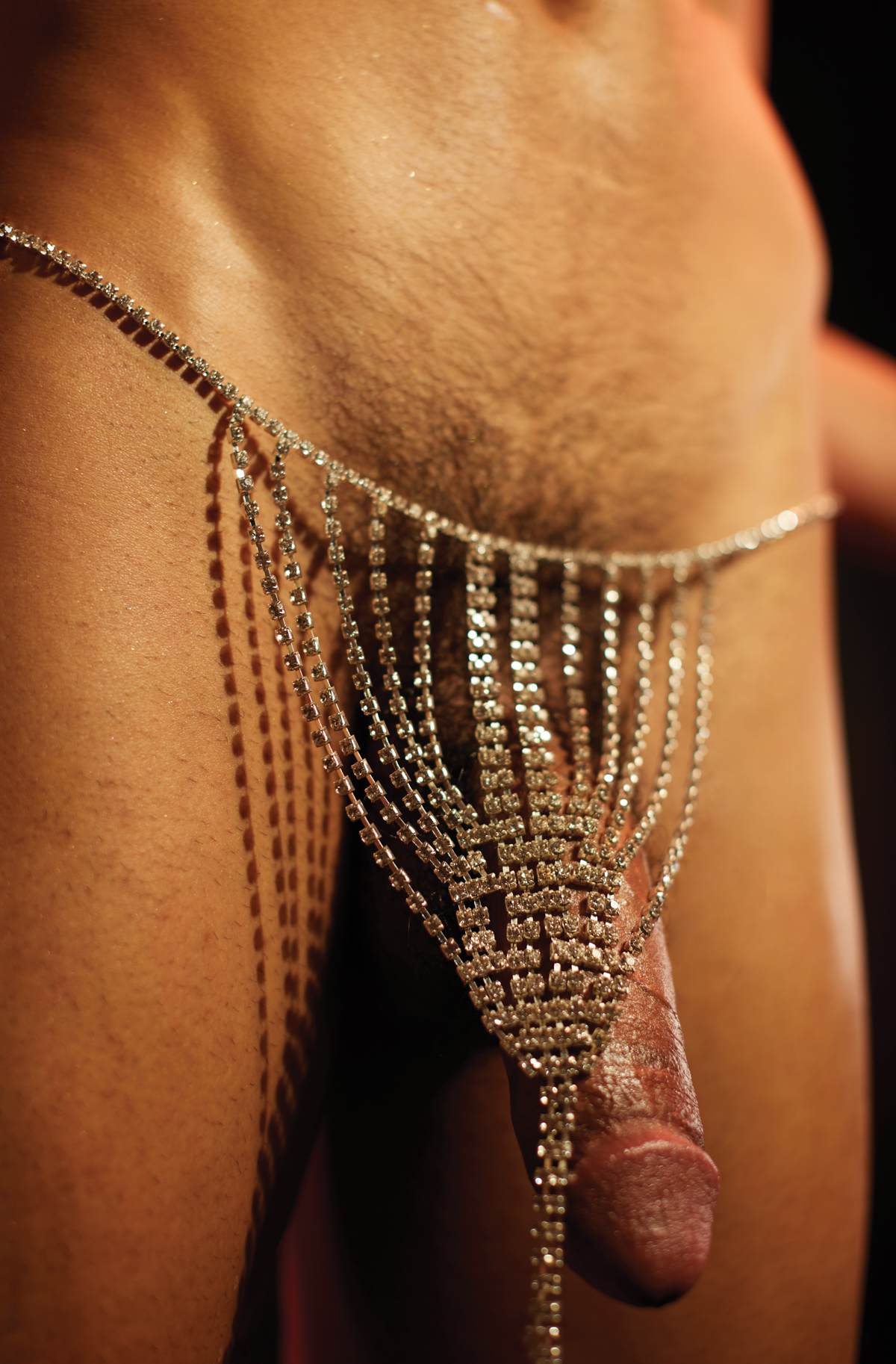
LaQuann Dawson, Self Portrait
Pornceptual: In your works, you address themes like normalizing/humanizing sex work, mental health and gender identity in the Black and queer community. You often talk about sex and sexuality not only as a primitive and instinctive act but as a form of relationship between humans. What is your view on your own sexuality and how has it developed throughout the years?
LaQuann Dawson: To be quite honest, a large part of my work exists as a seeking to better understand my own sexuality. My queerness and my relationship with shame because of my queerness consistently confront me and force me to grow. This growth is often painful and I do not always know how I want to be seen, what I actually look like, how I want to use my body or who I want to allow access to it. What I know is, I haven’t always owned my body or my sexuality. I’ve let my parents tell me who to love, I’ve let lovers push me into different beds, I’ve let my neighbors influence the way I do or do not dress and I’ve let fear keep me locked in the house. Through self-portraiture, I have found a way to take aggressive ownership over my body and the way that I see and use it in life. I’ve learned how to document my growth as a sexual being and as a man without asking for or needing permission. Through my own lens, I’ve found a particular confidence, love of self and a power that is going to keep me protected and full for a lot longer than I would’ve been waiting for someone else’s affirmation.
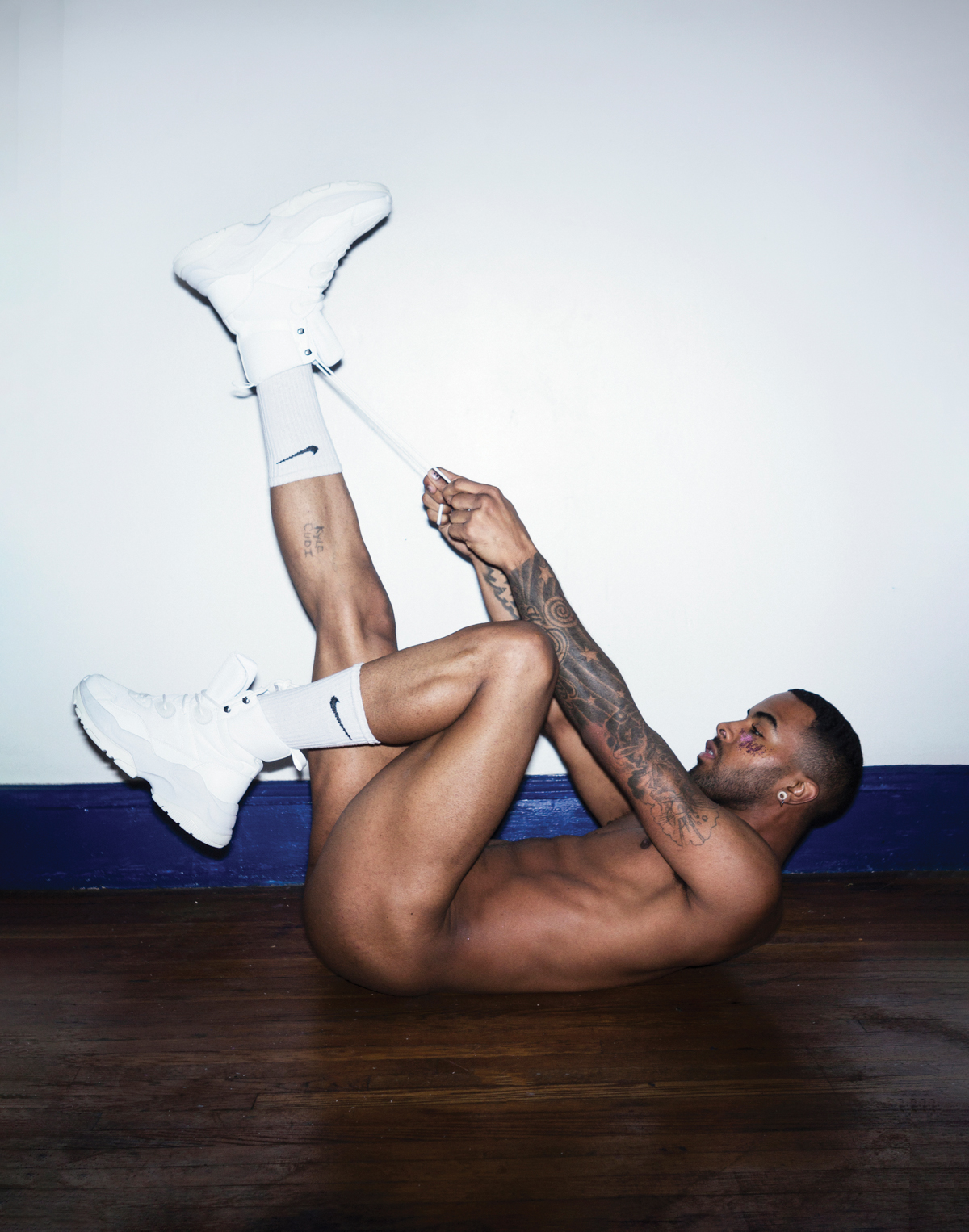
Ph: Vincent Marc; Model: Bambihanna
P: On another interview, you mention that you challenge people to look beyond sex and look for a story. In your opinion, how are art and sex connected?
LD: Sex is art. Sexuality is art. The way we choose a partner is an art, the way we move our bodies is art, the clothes we take off of them are art and the way our bodies grow is art, too. That’s the connection. We start to learn this when we are young. I remember being a kid, watching the way Prince would talk with his eyes and taking a mental note. Rewatching Beyoncè videos until I felt like I was doing the same things with my body as she was on the screen. When I’d have any privacy I’d sneak and make time to watch porn. I grew up studying bodies, allure and attraction. I still am and now that I’m older, I am realizing that through art I was taught what sex was and what it meant to be sexy. I am still trying to create my own versions of the sexy I was raised on.
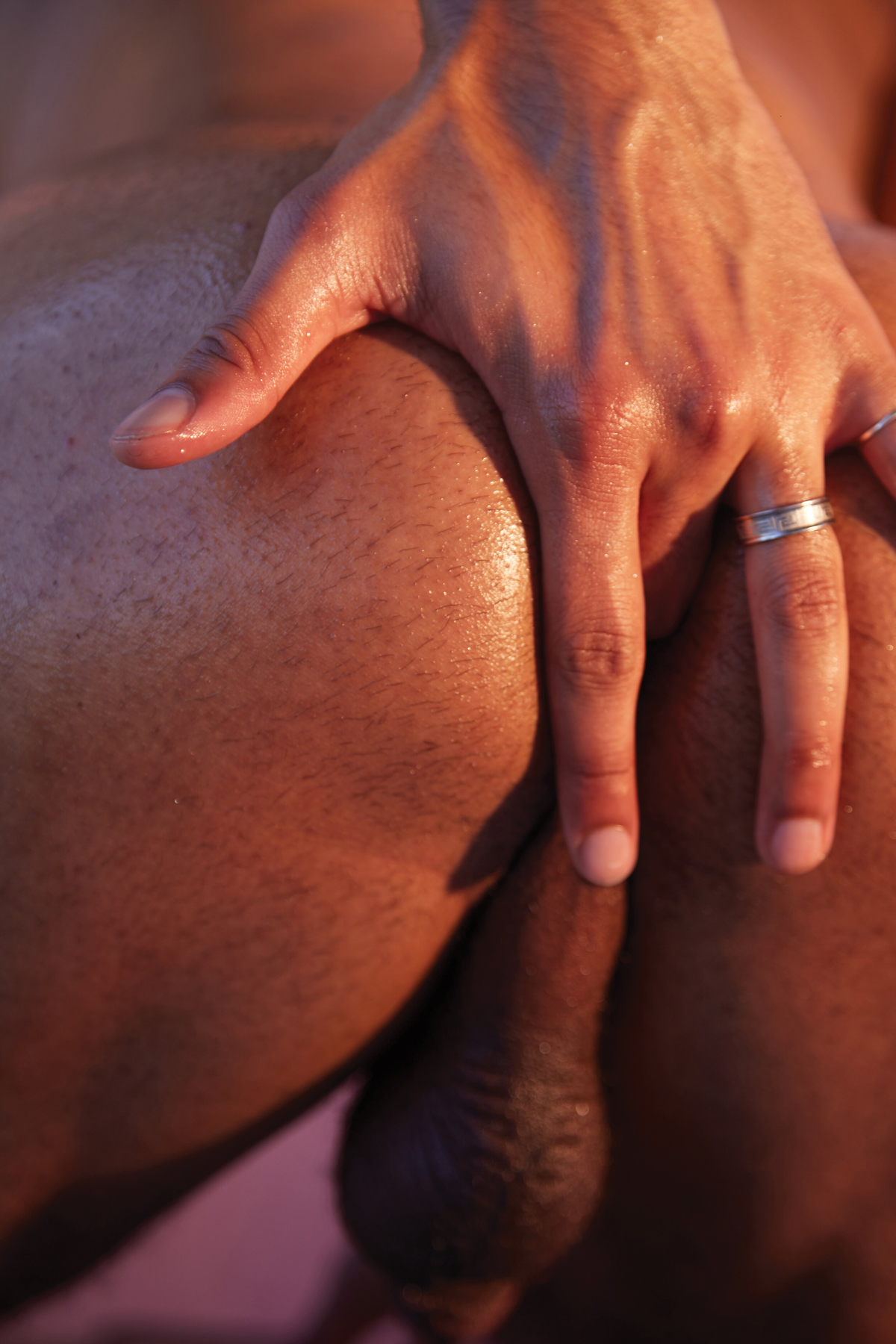
LaQuann Dawson, self portrait
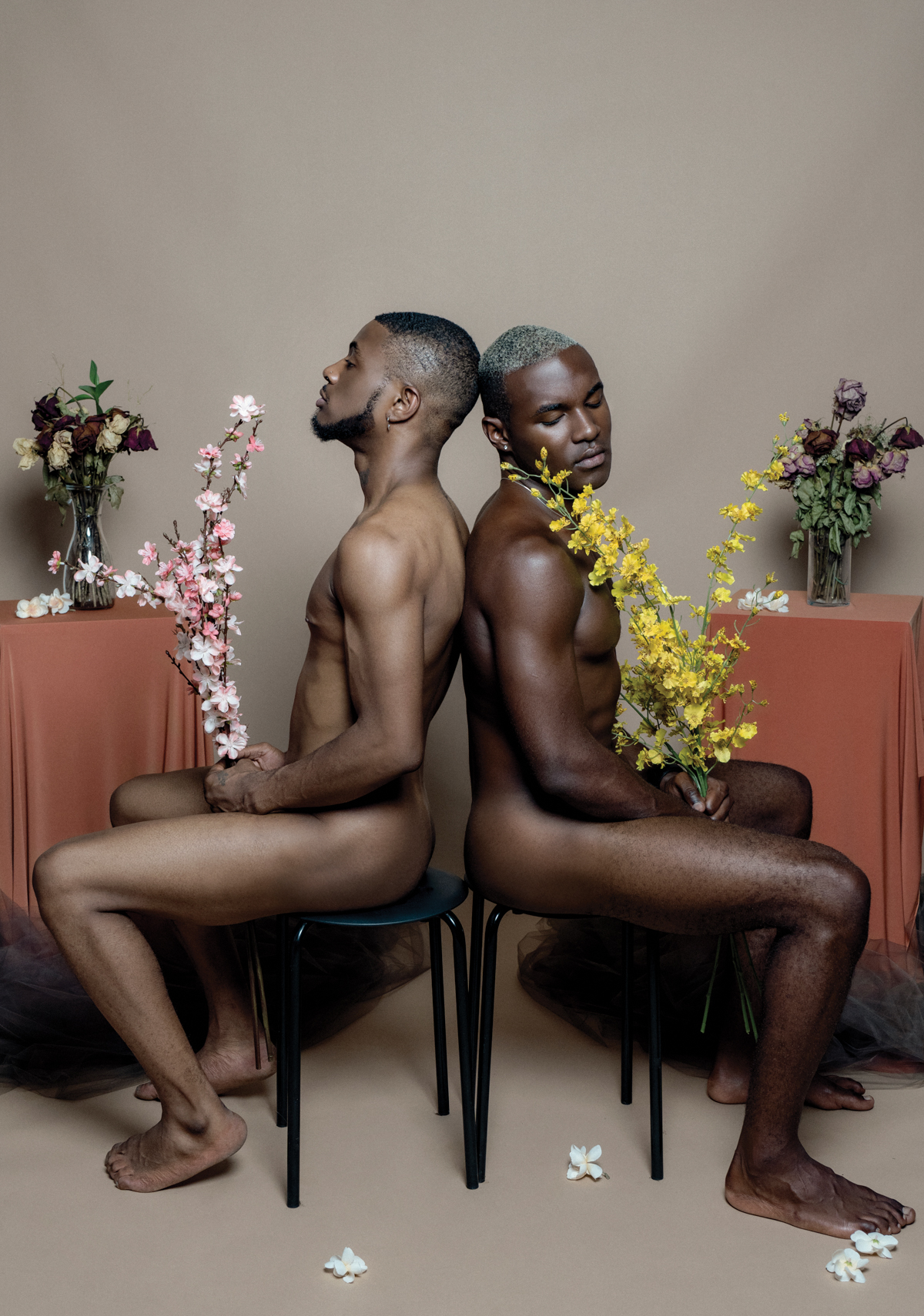
Ph: Vincent Marc; Models: Gerald Caesar, Coran Newsome
P: How do you draw the line between art and pornography?
LD: It is so easy to see sex or to see an unclothed body and to call it pornography and nothing else. In private, we appreciate pornography so very much as a people and we really always have. Publicly, however, I find folks having trouble celebrating, humanizing and claiming the people they cum to in private. Maybe this is because those people aren’t humans. Maybe they’re angels or heaven sent creatures and that’s why so many people have a hard time understanding their lives. Pornography is art. If you’ve ever been on a porn set or even in the bedroom recording with your partner, you’d know how much effort, thought, creativity and love has to go into it. Pornography it is an artform that we respond to differently than a lot of others because we cum to it. Much like any art it takes effort, it is controversial, it brings us pleasure, ideas, knowledge, confusion, laughter and all of it isn’t for us. I can’t say I am super interested, at least today, in drawing a line between art and pornography. While, on one hand I want to argue that the intention behind the art creates the distinction between the two, another hand says the viewer’s response to said art could define it. Today that definition doesn’t matter much to me.
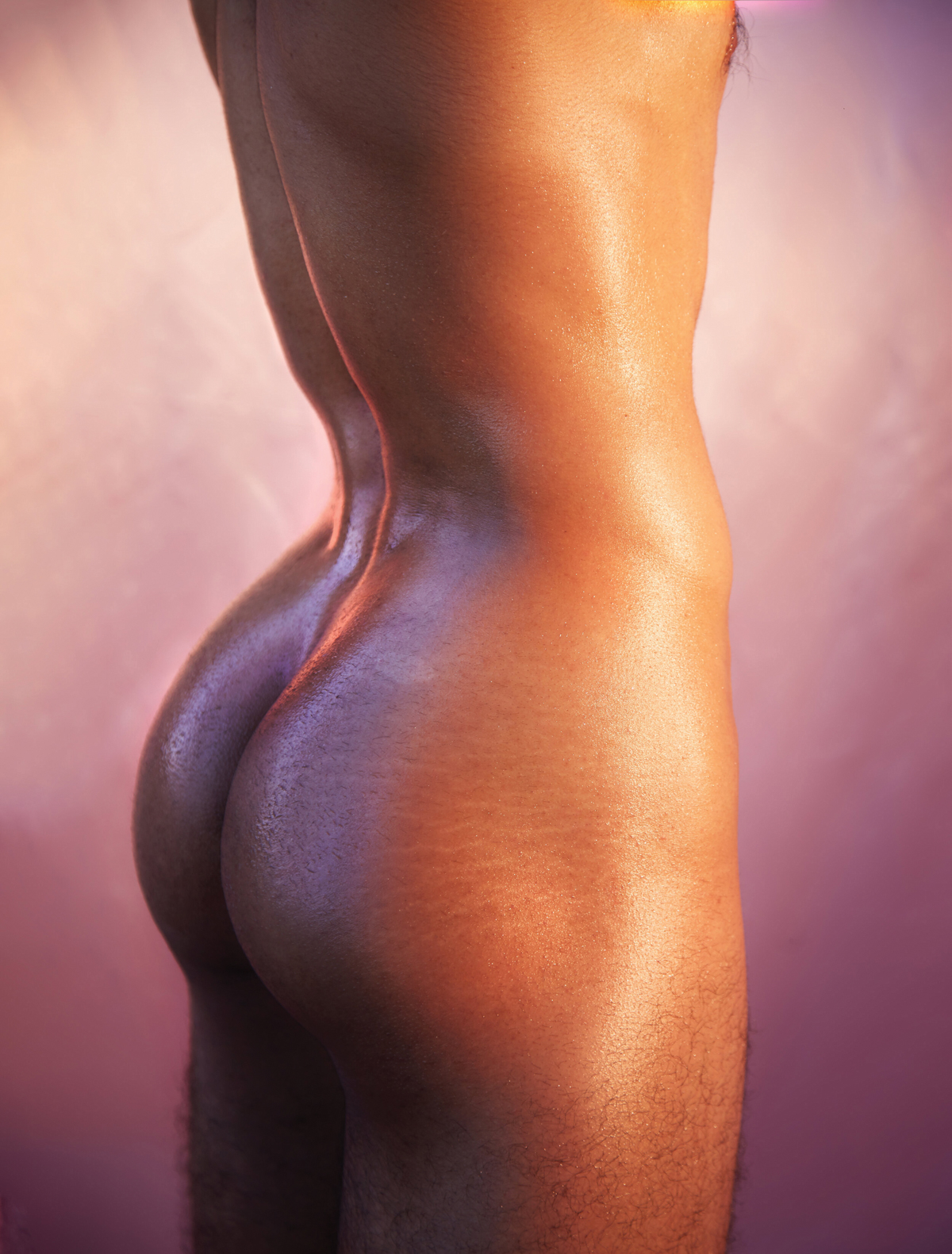
LaQuann Dawson, self portrait
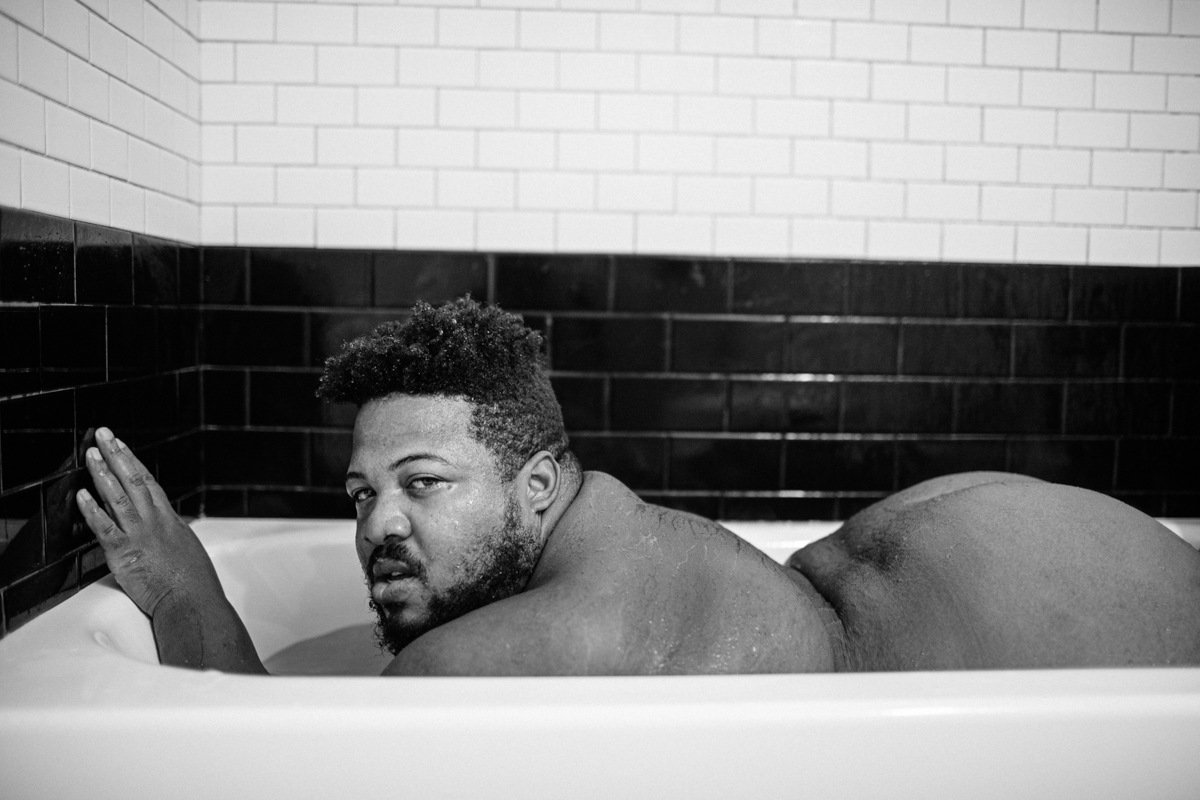
Ph: Tate Tullier; Model: Dexter
P: How did you begin your journey into photography and videography?
LD: Honestly, I was a kid in middle school with a Canon point and shoot who got tired of taking pictures of the trees in the backyard. I spent most of my time alone when I wasn’t at school and most of my belongings weren’t that interesting to look at, so there was nothing else to study but myself. I’d go to school, come home, change my outfit then prop my camera against a lamp or on top of some stacked chairs from my daddy’s backyard. I set a timer, 3…2…1 click. I’d practice my poses and figure out my angles then go back in photoshop to see how to make this look better. I’d upload it to Myspace, then Facebook then Tumblr then Twitter then Instagram. I did this regularly from middle school all the way through college and still today. In between that time, people asked me if I’d take their senior photos or their wedding pictures and whatever else. I would charge a moderate rate as I was building a portfolio and a skill set. I’ve said yes to so many favors and jobs, even jobs I was not qualified for. Saying yes has brought me many opportunities and has allowed me a fulfilling career.
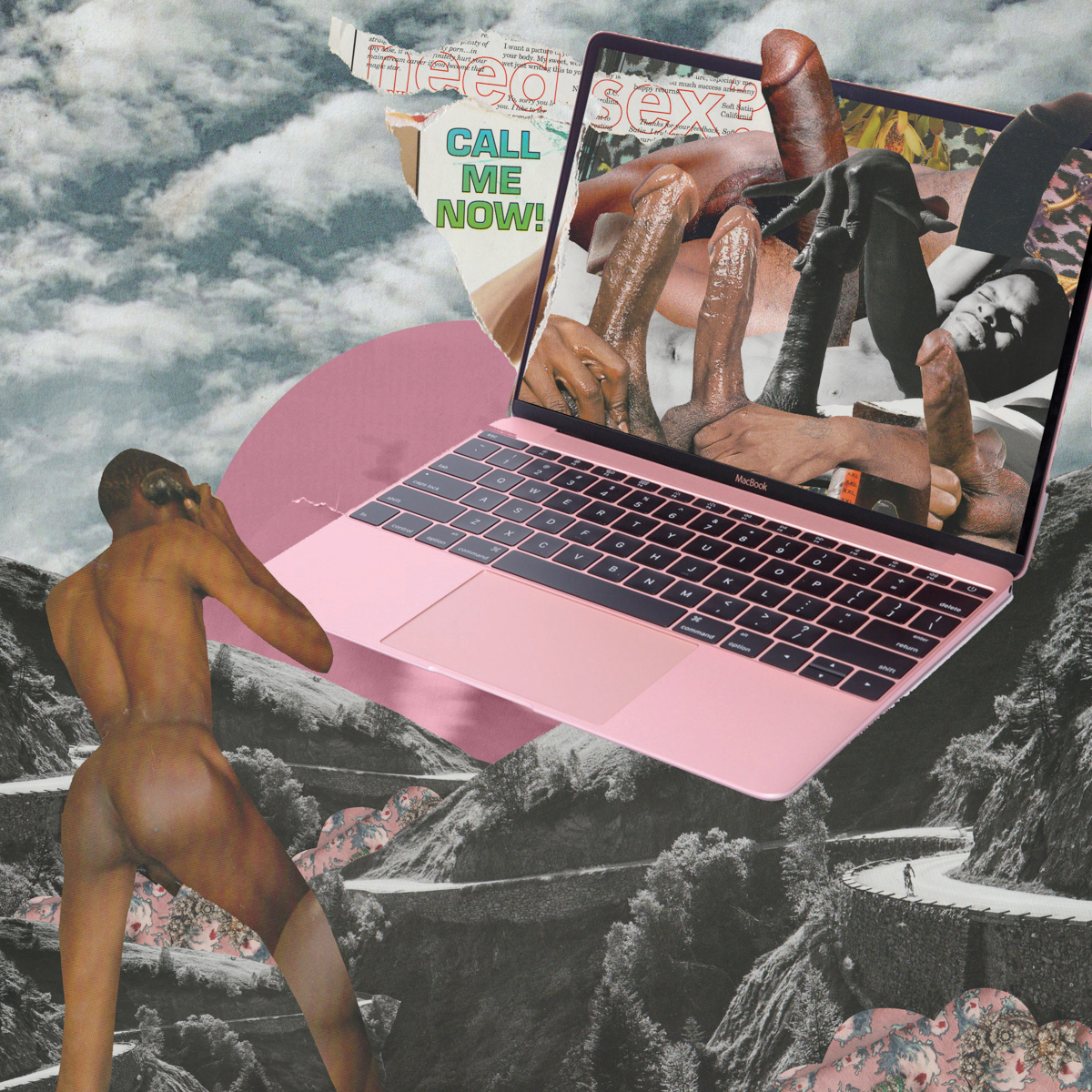
P: In the preface of the book you talk about how you felt the need to get more creative and dig deeper with your self-portraits shots and that this is how you began to wear less and less clothing and show more of your body, and by doing so, you began to see yourself more clearly. How has this process changed our own body perception?
LD: I’ve always been a bit reserved and sort of a late bloomer sexually. I wouldn’t kiss anyone, I wouldn’t hold hands and I never wanted anyone to see me with my shirt off. For a long time (and sometimes still) I even thought I would save myself for marriage. The further away from home I got, the more comfortable I became with my sexuality and putting an honest effort into figuring out who I was and what I liked sexually. Taking a self-portrait is never very planned out. Whatever happens in front of the camera is impulsive and natural and private, for the moment. I learn something new about myself when on set and when I go back to make image selects. What I’ve found in the past few years is that I love my body. Some days I have a lot of questions about it and some days I have none. The body I have isn’t the huge arms firm pecs and tight six pack I aspired to as a kid, but it is beautiful and worth all the celebration I give it and more.
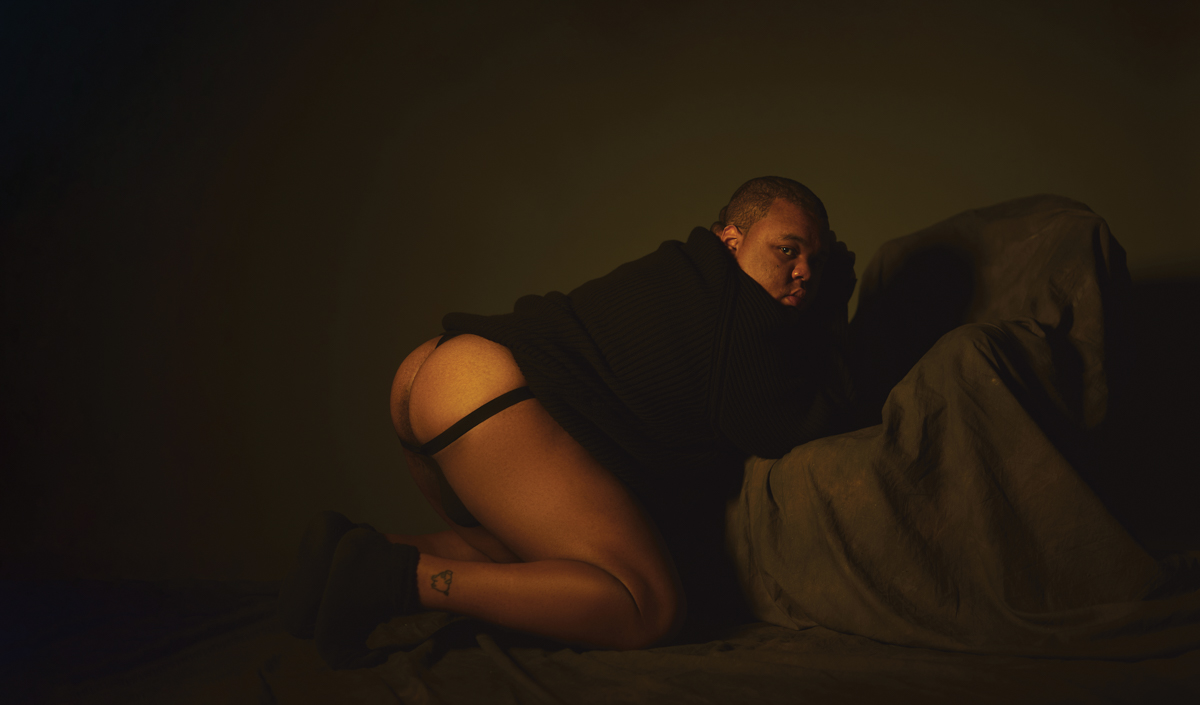
Ph: LaQuann Dawson, Model: Picasso Moore
P: You often refer to isolation, loneliness and rejection during your teenage years and first period in NYC, before discovering your community. How was the isolation period during the pandemic for you?
LD: At first it was actually perfect. I had just spent two months shooting in the studio nearly everyday for a docuseries I was filming for MOBI and for Jack’d’s relaunch campaign. It was time to sit my ass down and edit. As months went on my roommates stopped coming home and eventually moved out, I had met all of my deadlines, I was falling in love and getting my heart broken, I grew tired of cooking and finally the loneliness had set in. Having found community does not make me experience isolation, loneliness or rejection much less, but it does mean that when I feel those things, I do not have to feel them alone. I have people to call and to lean on and they have me too. I’ve learned that loneliness can be felt in loving company, together I mean. This can be warm, lonely still, but warm.
P: Has your relationship with sex and porn changed?
LD: I am becoming more (and less) frightened of sex every day. I am less concerned about any of my work being considered pornographic. If anything, I am finding that to be a huge compliment. Throughout 2020 I was able to sit down with Black gay porn stars like Max Konnor and DeAngelo Jackson in interview settings to discuss the adult film industry, onlyfans and ownership. I’ve learned so much about them as individuals and business people, more than anything else. This has opened my mind and has informed my own individuality, sexuality and business sensibility. I still look at sex (with me) as a gift, something to cherish and to protect. Something to understand and interrogate. I now look at porn as financial pursuit just as much as it is a search for pleasure. Sometimes I want to know something about the people in these films. With the work I do now and the way social media is set up I can actually ask those questions and get answers.
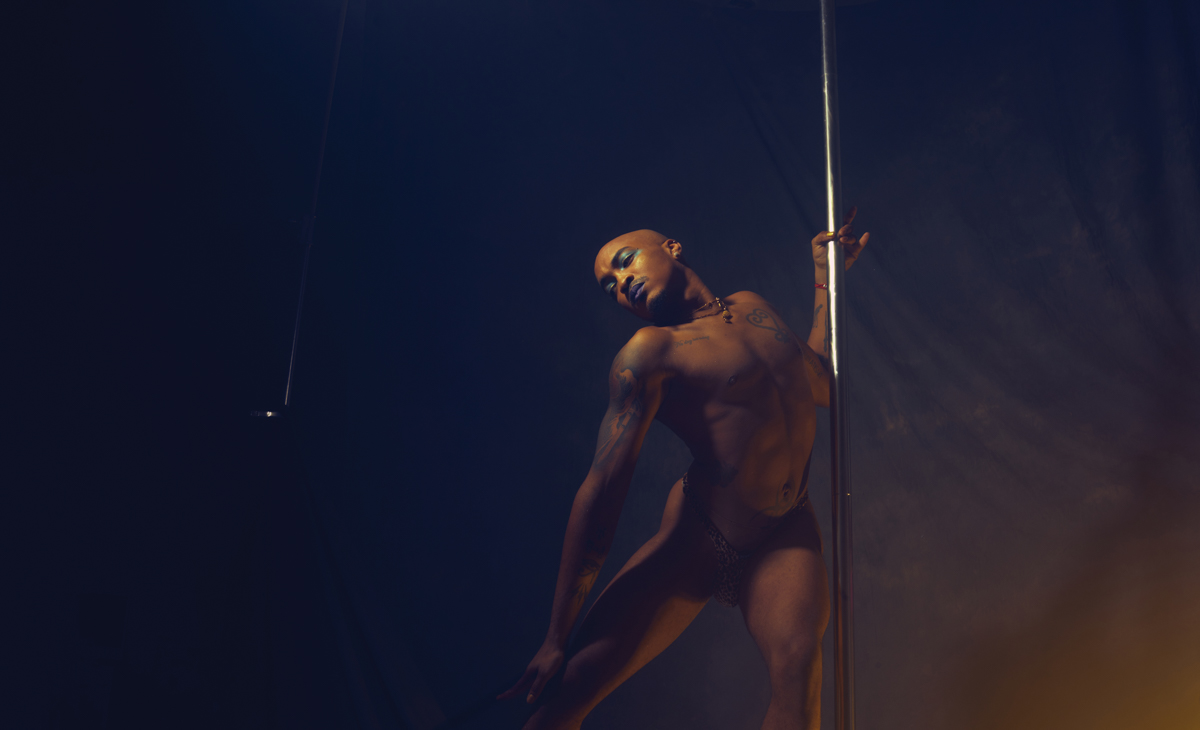
Ph: LaQuann Dawson, Model: Dey Armbrister
P: The first proposal from Impulse Group NYC was for you to shoot a digital campaign about transparency and tell your own story of a black queer artist in NYC, but you came up with the idea of letting other members of your community tell their own story. What’s the main intention behind it?
LD: To clarify, Impulse Group NYC first reached out to me to shoot a digital campaign celebrating the lives of NYC’s queer community through mine and their direction. Impulse Group NYC is a non-profit sponsored by the AIDS Healthcare Foundation. The group was formed to engage, support and connect gay men throughout New York City and New Jersey. Due to Covid-19 this digital campaign turned into a coffee table book with the same goal of celebration. Impulse envisioned this happening across a few days in the studio where I’d photograph members of the community to fit a number of different themes. I thought this sounded great, but something was off. We were missing an opportunity to truly celebrate the community and their stories. I didn’t want to walk into this door alone and I knew of many talented artists who could make this book something really special. I was introduced to the anthologies Brother to Brother by Essex Hemphill and In the Life by Joseph Beam when I first moved to NYC. Since then, I’ve found so many collections of work from Black and queer artists. Digestible bodies of work that I could revisit often, colorful, vast works that were diverse in content because of the many voices included. I wanted our book to do that too. I’m not an expert on the queer experience, only my own so I proposed Impulse Group NYC allow me to curate the book and invite the community in a much larger way. They said yes. Our Light Through Darkness is the result of that.
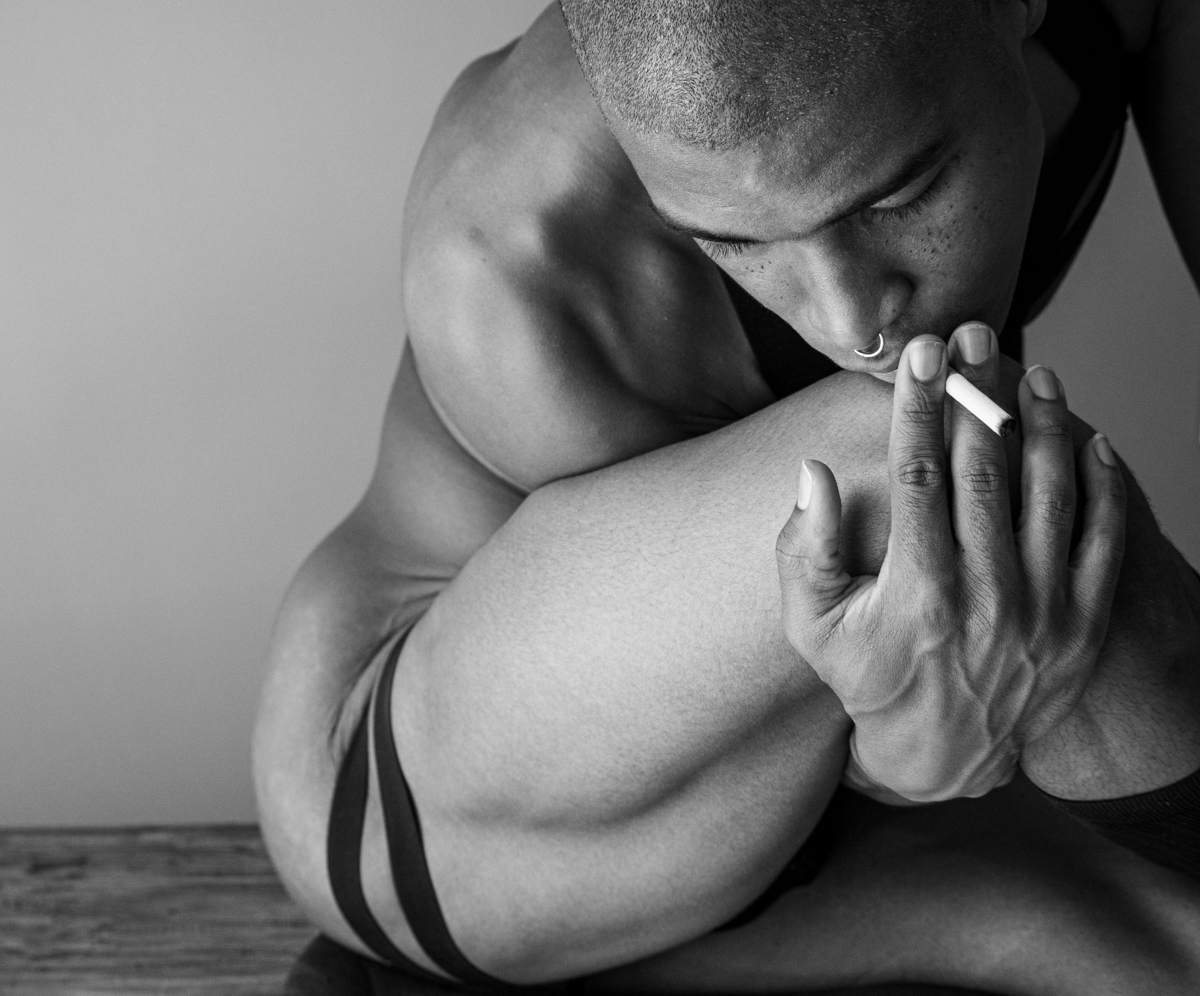
David Maurice, Self portrait
P: What do you want your readers to learn from this book?
LD: I want them to learn of our aliveness. I want them to see how present we are, how fly we are, how beautiful and how well. I want people to see themselves in this book and to smile. Be proud of themselves, their work, their friends and I want them to know their worth. I hope they show their families and some strangers too and flex a ‘lil bit. I want the names of the artists in this book to travel from room to room to room. I want them to meet each other and celebrate. I want those artists to get booked and I want their prices to go up. The people this book is seeking to reach are the people who made it up. Reflection has been the greatest gift of my life and my wish is for everyone to receive that gift and celebrate too.
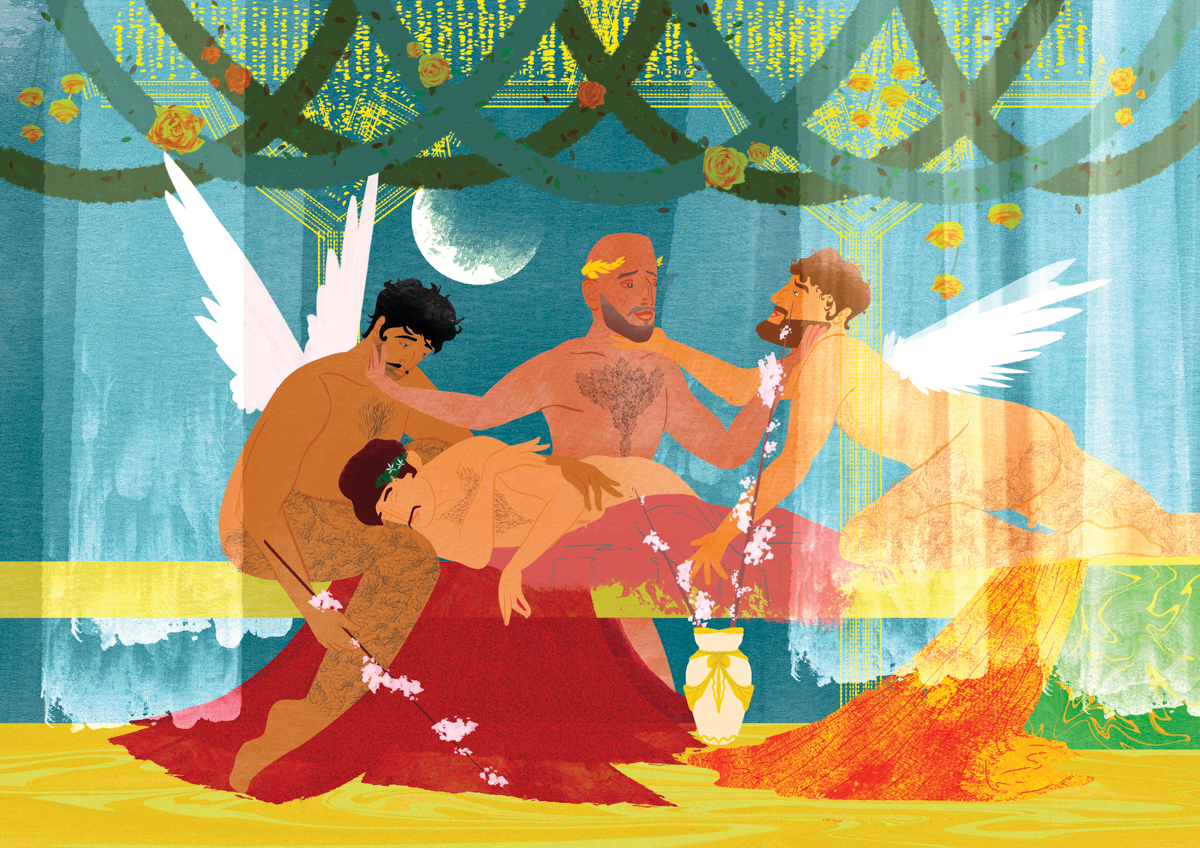
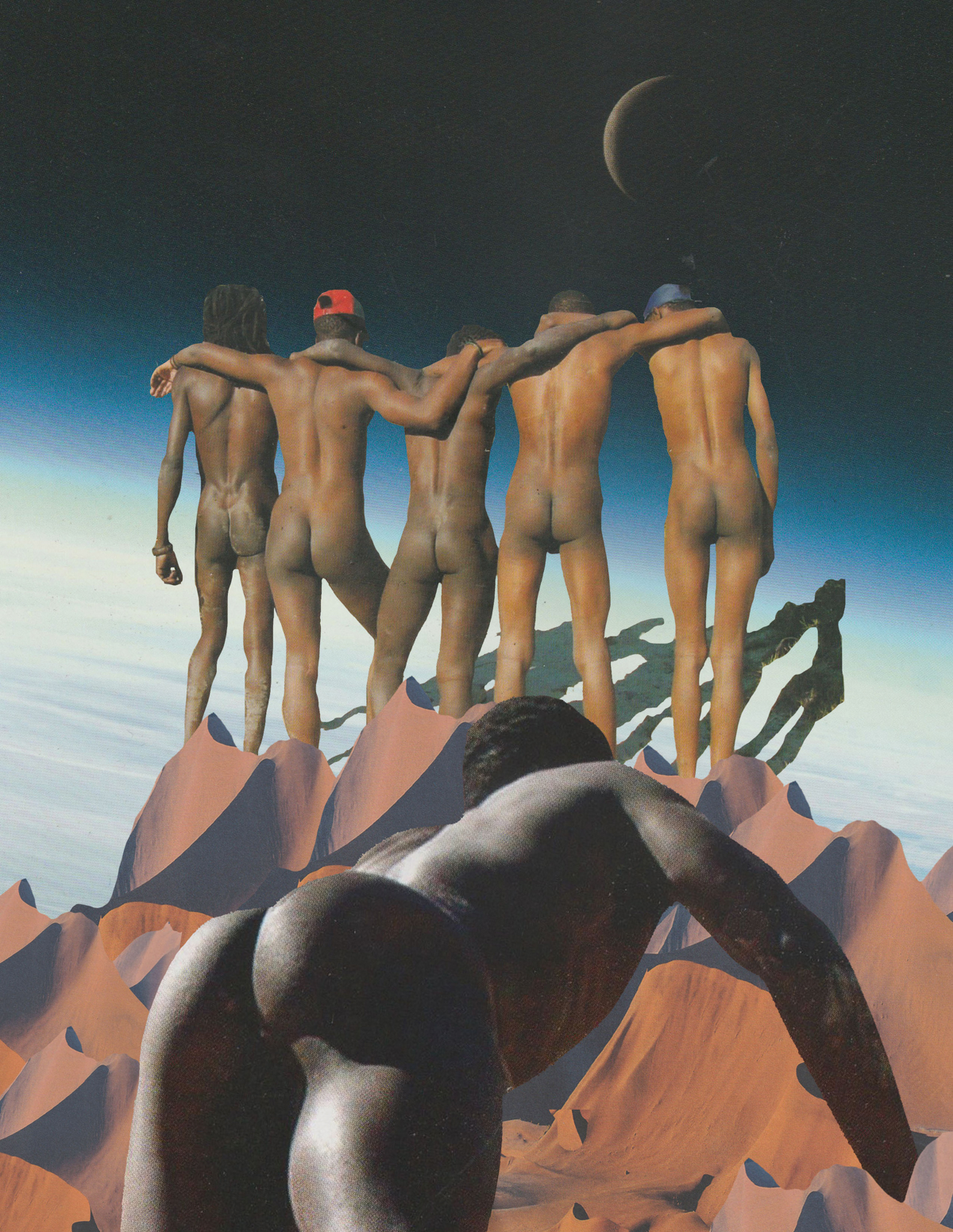
P: In the book, subjects like kinks and fetishes are combined with revolution and anger. What is the connection between those topics?
LD: The connection is experience. Our Light Through Darkness is a collection of stories from queer photographers, illustrators, writers and more that carries themes of kink, fluidity, HIV positivity, stories of recovery, rebellion, unrest and more. These themes are inherent to our experience as queer people. We cannot freely express the things that excite us sexually without talking about all of the times we had to hide. Black men cannot fully love other Black men without fighting a system that allows Black men to be murdered without penalty. This book is a conversation about experience. It is to say “yeah you went through all that, but we are still here.” We made it to today and will make it to tomorrow. This book is a love letter to queer people in an effort to say “you did that, i love you, keep going.”
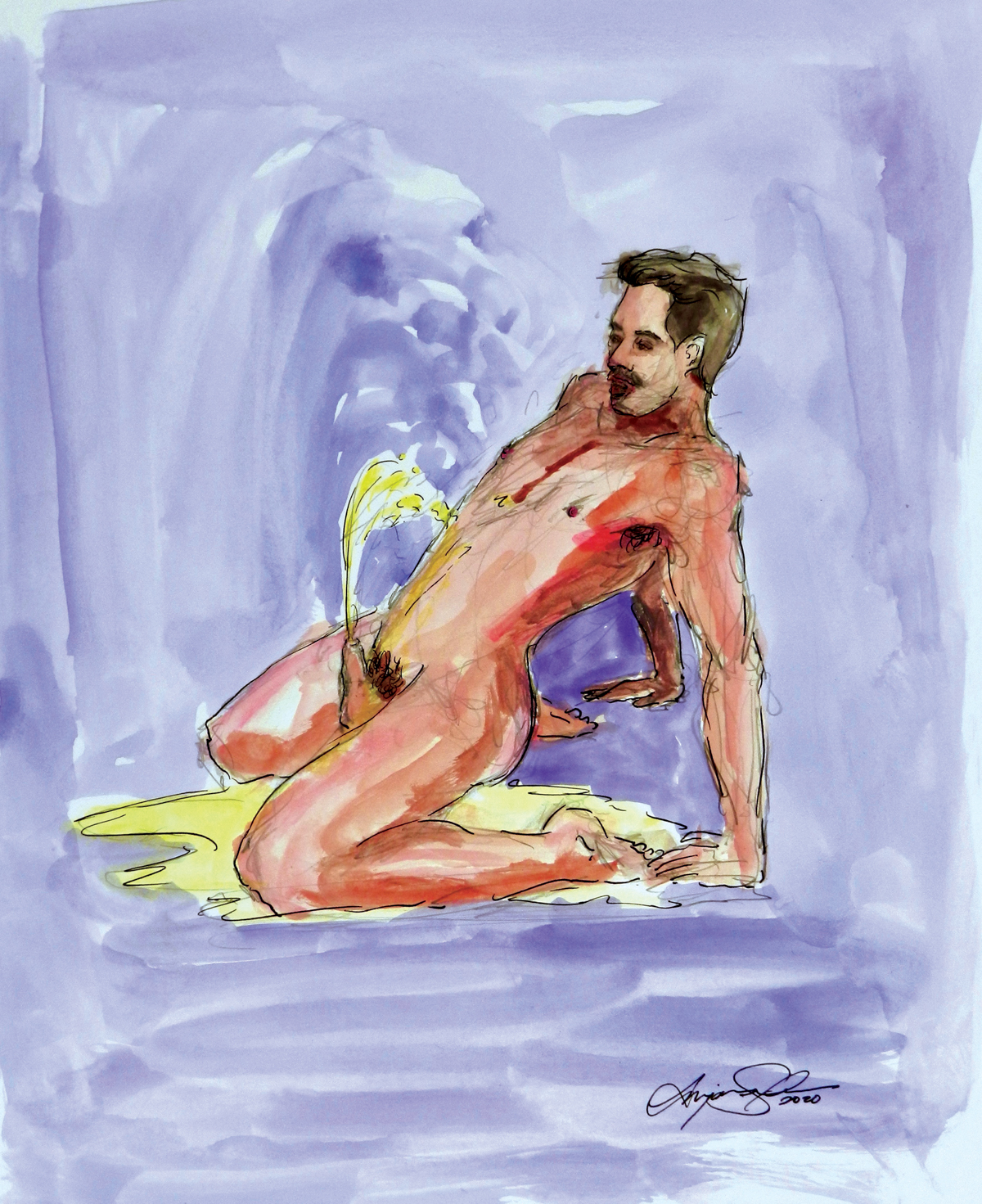
Leave a Reply